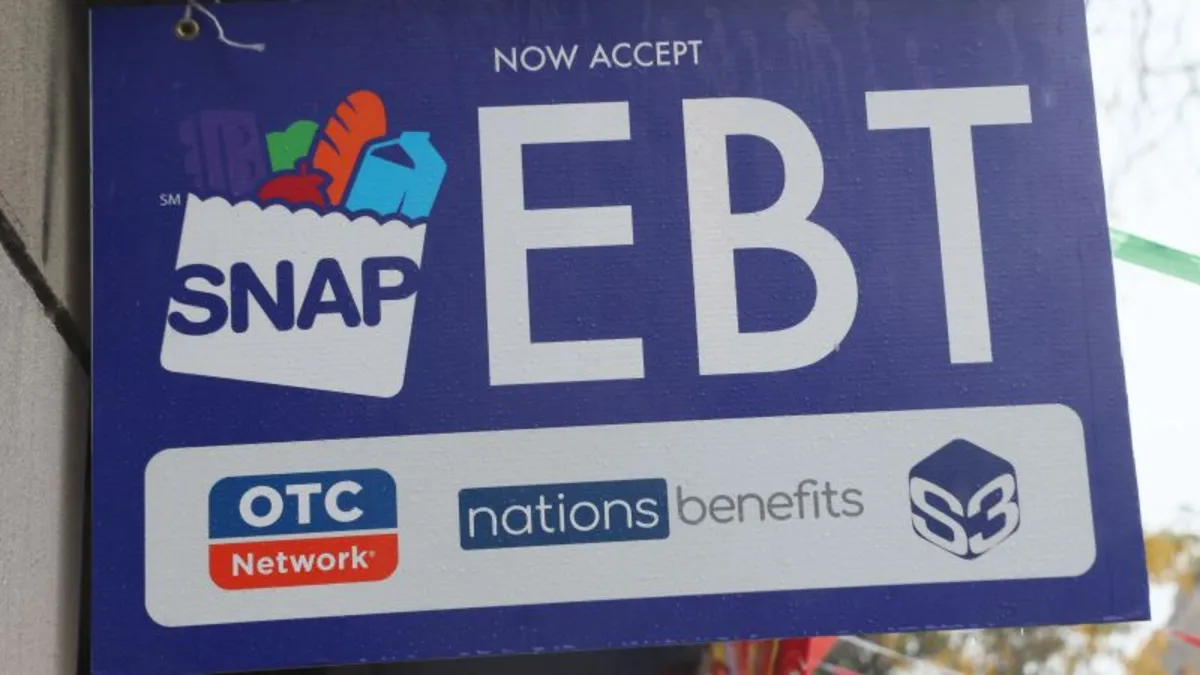
On Tuesday, the Supreme Court made a pivotal decision to extend a short-term order that permits the Trump administration to withhold full payments for food stamp benefits in November. This strategic move appears aimed at delaying the case for a few additional days, with the hope that Congress will reach an agreement to reopen the federal government. The ongoing emergency appeal concerning the Supplemental Nutrition Assistance Program (SNAP), which assists over 40 million Americans, coupled with various lawsuits in lower courts, is likely to be rendered moot if the historic government shutdown concludes in the coming days.
Until a resolution is reached, the administrative stay issued by Justice Ketanji Brown Jackson on Friday will remain in effect, blocking a lower court's ruling that mandated the administration to provide full federal food benefits. In a brief order released on Tuesday, the Supreme Court confirmed the extension of this administrative stay through the end of the day Thursday. Justice Jackson dissented from this extension, indicating a divided opinion within the Court.
The implications of the shutdown have become tangible, with the spiraling legal battle over food stamps emerging as a significant issue. Groups challenging the administration informed the Supreme Court that SNAP beneficiaries have now endured ten days without essential assistance for food, leading to millions of Americans, including vulnerable children, facing hunger.
Nearly 42 million Americans receive food stamps on a staggered monthly basis, with approximately 27 million expected to have received their allotments by Monday, according to estimates by Code for America, an organization dedicated to improving access to safety net programs. Households typically receive around $350 on average each month to support their food purchases. However, for many families, this assistance is depleted quickly.
The Trump administration contends that the lower court's order mandating full SNAP payments overstepped its bounds, as it would require the U.S. Department of Agriculture (USDA) to reallocate approximately $4 billion from one fund to another. Furthermore, the Justice Department cautioned that the lower court's directives concerning food aid could entangle federal courts in political matters, complicating efforts to resolve the shutdown.
Under a separate court order not reviewed by the Supreme Court, the administration has utilized contingency funds to issue partial food stamp benefits for November. Consequently, the central question before the Supreme Court was whether the administration could be compelled to disburse full benefits.
Amidst various USDA guidance memos resulting from the ongoing court actions, numerous states have sent either full or partial November benefits to residents. According to a tally by CNN, at least 16 states have provided beneficiaries with their complete allotments for the month, while another five states have issued partial payments.
The food stamp program has been in a state of legal uncertainty since last month, when officials announced that recipients would not receive their November payments due to the lapse in government funding. This announcement led to two lawsuits, with federal judges ruling that the agency must access contingency funds to deliver at least partial benefits or use other revenue sources to fully fund the November allotments.
The USDA opted to distribute partial benefits but cautioned that it could take weeks or even months for some states to recalculate allotments and provide assistance. Nonprofit organizations challenging President Trump swiftly returned to U.S. District Judge John McConnell in Rhode Island, urging the court to compel the USDA to fully fund benefits to expedite financial assistance for millions of recipients. Judge McConnell ruled that the administration had not acted quickly enough to ensure that partial benefits reached the program’s recipients, deeming its decision against full payments as “arbitrary and capricious.”
The administration then quickly appealed to the Boston-based 1st U.S. Circuit Court of Appeals and subsequently to the Supreme Court. Justice Jackson, who handles emergency appeals from the 1st Circuit, issued an “administrative stay” on Friday, effectively pausing Judge McConnell’s order for a few days to allow lower courts to review the case. This emergency order was set to expire shortly before midnight on Tuesday, with Jackson not providing an explanation for her dissent regarding the court’s extension.
This ongoing situation highlights the critical challenges faced by millions of Americans relying on SNAP benefits amid a government shutdown, emphasizing the importance of swift legislative action to restore vital support for those in need.